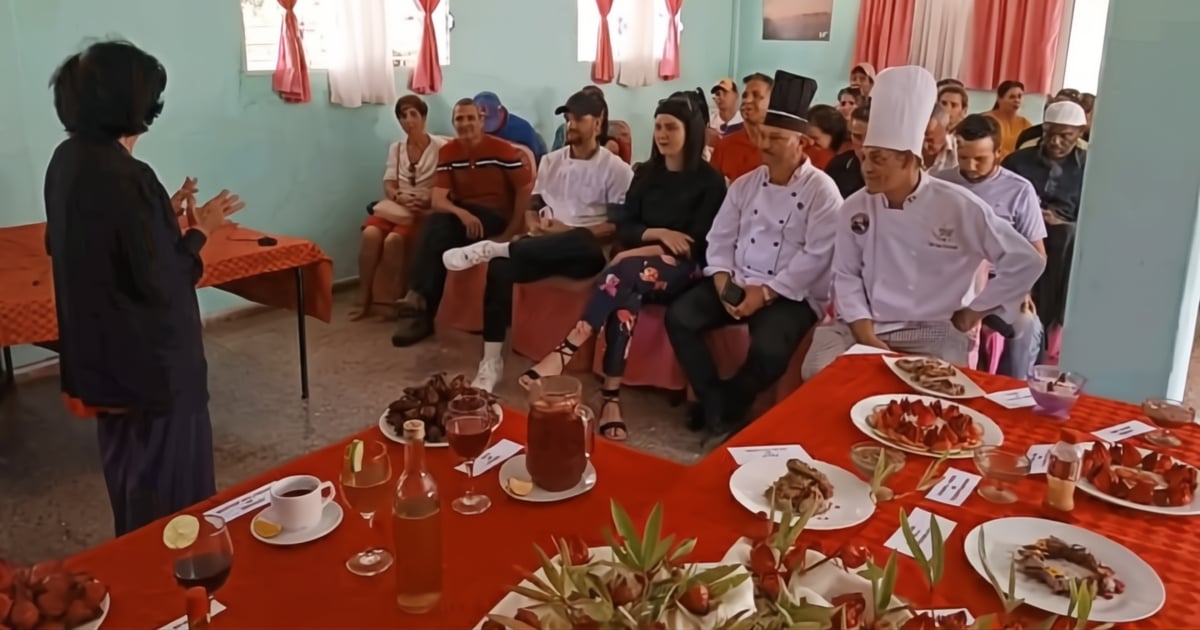
In a country where food scarcity is already part of the daily menu, the Cuban government is now betting on hibiscus as a culinary "alternative."
During the Culinary Workshop “From the Furrow to the Plate,” held in Mayabeque, producers, international chefs, academics, and officials gathered to highlight the benefits of this plant, showcasing its use in beverages as well as dishes like lasagna and chicken preparations.
The authorities are promoting its cultivation as a solution to the food crisis, highlighting its nutritional and medicinal properties, the National Institute of Agricultural Sciences (INCA) reported on its official Facebook page.
However, although the Hibiscus flower is recognized in several countries as an excellent food source, for many Cubans who are less familiar with it, it seems more like a makeshift solution than a serious response to the shortage of basic food items.
The publication highlighted the rich "nutritional properties" of the Hibiscus flower, noting that during the workshop it was presented in a "variety of combined dishes," including "pineapple, chicken, lasagna, small cakes, pancakes, and beverages."
According to INCA, these creations received "great acceptance from those present," and it seems that in times of crisis, any edible alternative can become the new star ingredient, as was previously the case with moringa.
The workshop organizers indicated that this product is not only an "option and alternative" for commercial activity but also "would facilitate bringing new food proposals with nutritious properties to the table," because, it seems, the magic solutions to the food crisis in Cuba now come in the form of flour.
Additionally, producers were urged to "continue expanding the cultivation of the prized plant," emphasizing not only its medicinal properties but also its various culinary uses.
With this discovery, the Cuban menu could diversify, although the regime seems indifferent to the fact that obtaining basic products remains a daily ordeal.
Amid the announced worsening of the food crisis on the island, the official press suggested that Cubans should feed on corojos, cane fístula, and cactus, plants it referred to as underutilized edible species in the country.
A report from Periódico 26 in Las Tunas states that food sovereignty is an aspiration of the regime "that is very far from becoming a reality," while the population faces the ordeal of obtaining food for their tables, which they must buy at high prices.
Frequently Asked Questions about the Promotion of Hibiscus in Cuba
Why is the Cuban government promoting the Hibiscus flower as a culinary solution?
The Cuban government promotes the Hibiscus flower as a culinary "alternative" due to the food crisis the country is facing. During the Culinary Workshop "From the Furrow to the Plate," its nutritional properties and versatility in cooking were highlighted, with the hope that its cultivation can help alleviate the shortage of basic foods. This strategy is seen as a makeshift response to the government's inability to ensure essential food supplies.
What are the nutritional properties of Hibiscus flower?
Hibiscus is known for its nutritional and medicinal properties. It is used in a variety of dishes and beverages, notable for its high content of antioxidants and vitamins. However, its promotion in Cuba is seen more as a desperate measure than an effective solution to the country's food problem.
How has the Cuban population responded to the promotion of Hibiscus?
For many Cubans, promoting the Hibiscus flower as a food solution feels more like a stopgap measure than a serious response to the crisis. The population faces daily challenges in accessing basic products, leading to skepticism about these initiatives, which are seen as distractions from the real problems.
What other food alternatives has the Cuban government proposed in the past?
In addition to hibiscus, the Cuban government has promoted other alternatives such as moringa and black soldier fly, highlighting their nutritional benefits. These proposals have faced criticism for their disconnection from the daily reality of Cubans, who are dealing with a severe shortage of basic food items.
Filed under: